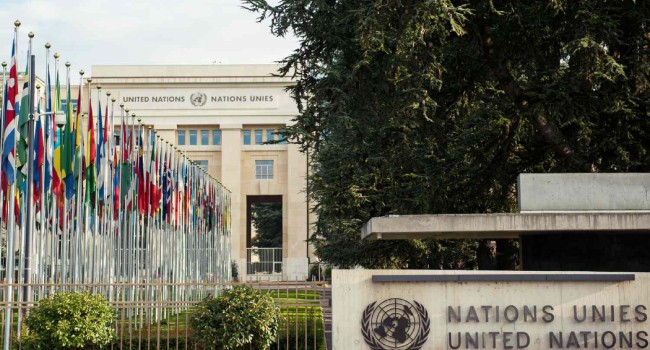UN Halts Humanitarian Air Service in Northeast Nigeria Amid Funding Crisis
The United Nations has suspended its critical air transport service in northeastern Nigeria due to severe funding shortages, raising alarm over the potential impact on humanitarian operations in the region.
The U.N. Humanitarian Air Service (UNHAS), operated by the World Food Programme (WFP), officially halted its fixed-wing flights last week after nearly a decade of delivering aid workers, medical supplies, and essential cargo to conflict-affected areas in Borno and Yobe states.
“In 2024 alone, UNHAS fixed-wing flights carried over 9,000 passengers. Already this year, 4,500 humanitarian staff have depended on the service to reach vulnerable communities,” said U.N. spokesperson Stéphane Dujarric during a briefing in New York on Wednesday.
Dujarric stressed the urgency of the situation, noting that UNHAS requires $5.4 million to remain operational over the next six months. “Without this funding, the humanitarian response in northeast Nigeria risks being cut off from the very people it is meant to serve,” he warned.
The closure underscores the broader financial challenges facing the WFP, which in July announced it may have to suspend emergency food and nutrition assistance for 1.3 million people in the region due to dwindling resources.
“For nine years, UNHAS has provided a lifeline for humanitarian operations in the northeast, especially in areas where road travel remains extremely dangerous due to ongoing conflict,” Dujarric said. “In a country that has experienced 16 years of crisis, air transport is essential.”
The decision to shut down the service comes as global humanitarian funding faces unprecedented strain, with aid agencies responding to concurrent crises in Gaza, Sudan, Ukraine, and elsewhere.
Margot van der Velden, WFP’s Regional Director for West and Central Africa, emphasized the critical need for immediate support. “We urgently require $5.4 million just to sustain air operations and food assistance in the northeast for the next six months,” she said.
Although the Nigerian government has increased its support and is currently the largest contributor to the emergency response in the northeast, the UN said international donor support remains vital to sustain relief operations at scale.
“The loss of air links means humanitarian workers lose safe access to remote, conflict-affected communities—communities already battling hunger, displacement, and violence,” Dujarric said. “Without intervention, the consequences could be devastating.”
The UN warned that families in isolated areas may be forced into increasingly desperate choices, including migration under unsafe conditions or falling prey to extremist groups that continue to exploit the region’s vulnerabilities.
“For northeast Nigeria, where insurgency and instability have displaced millions, the loss of this vital air bridge may further isolate already vulnerable populations—at a time when they can least afford it,”




